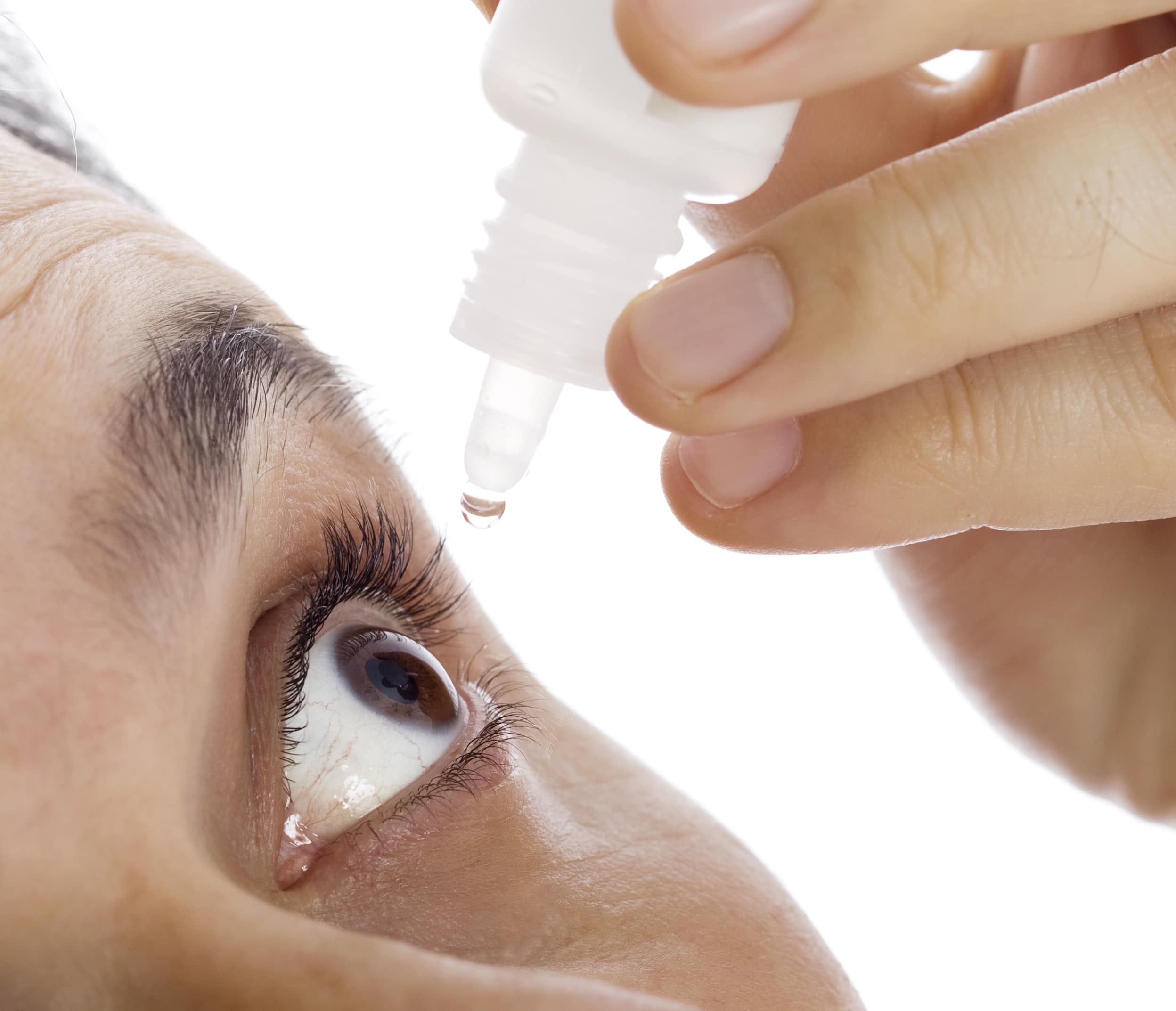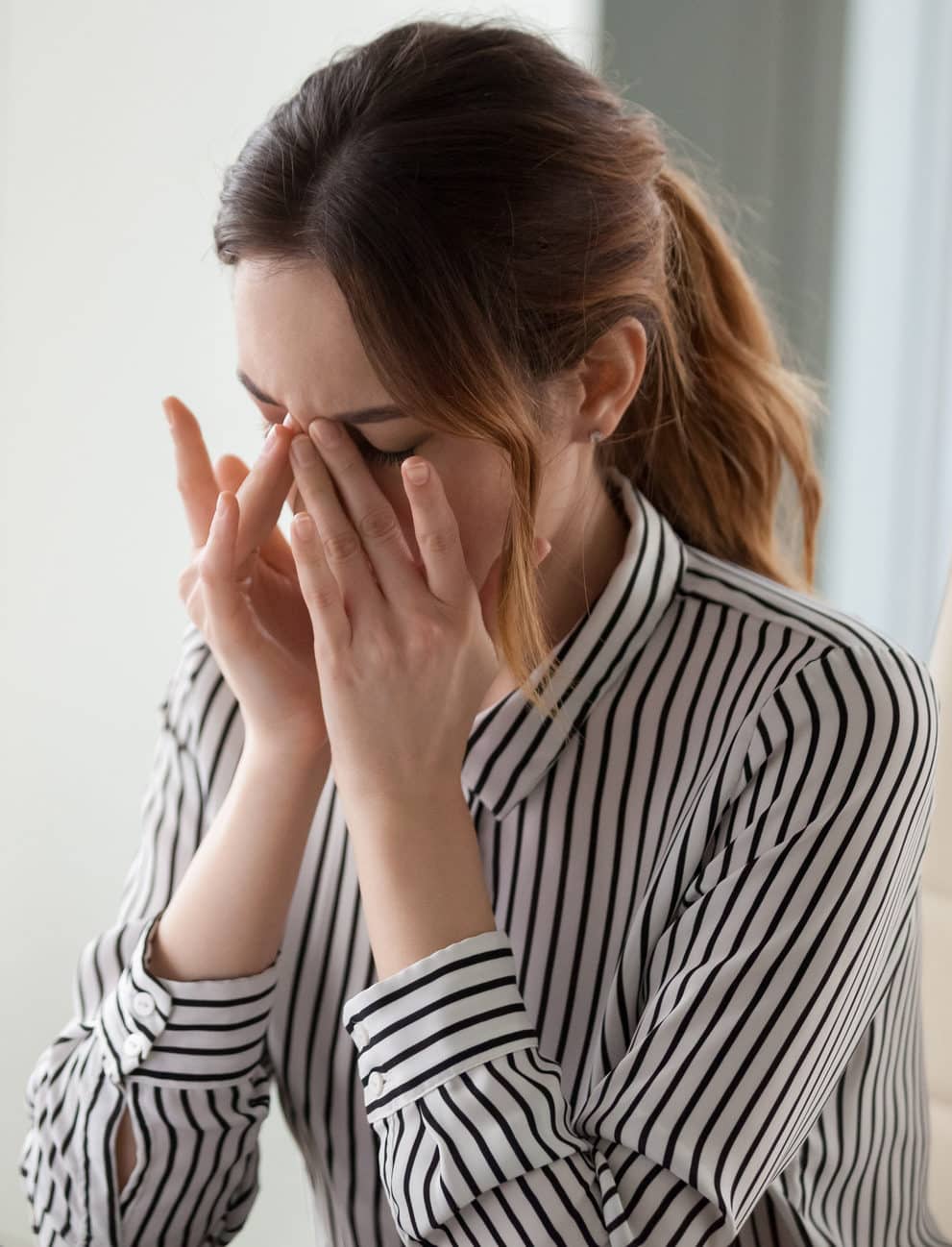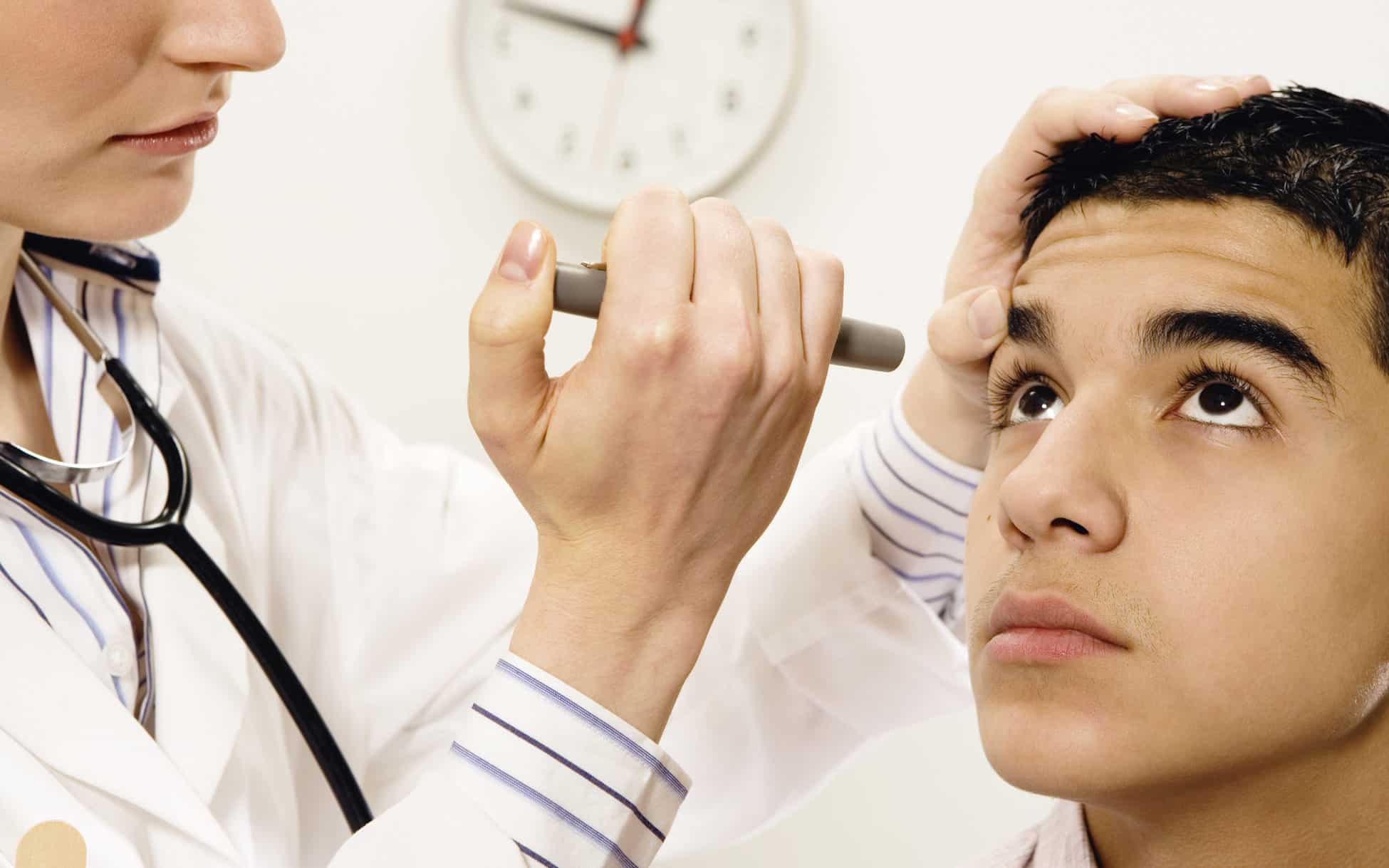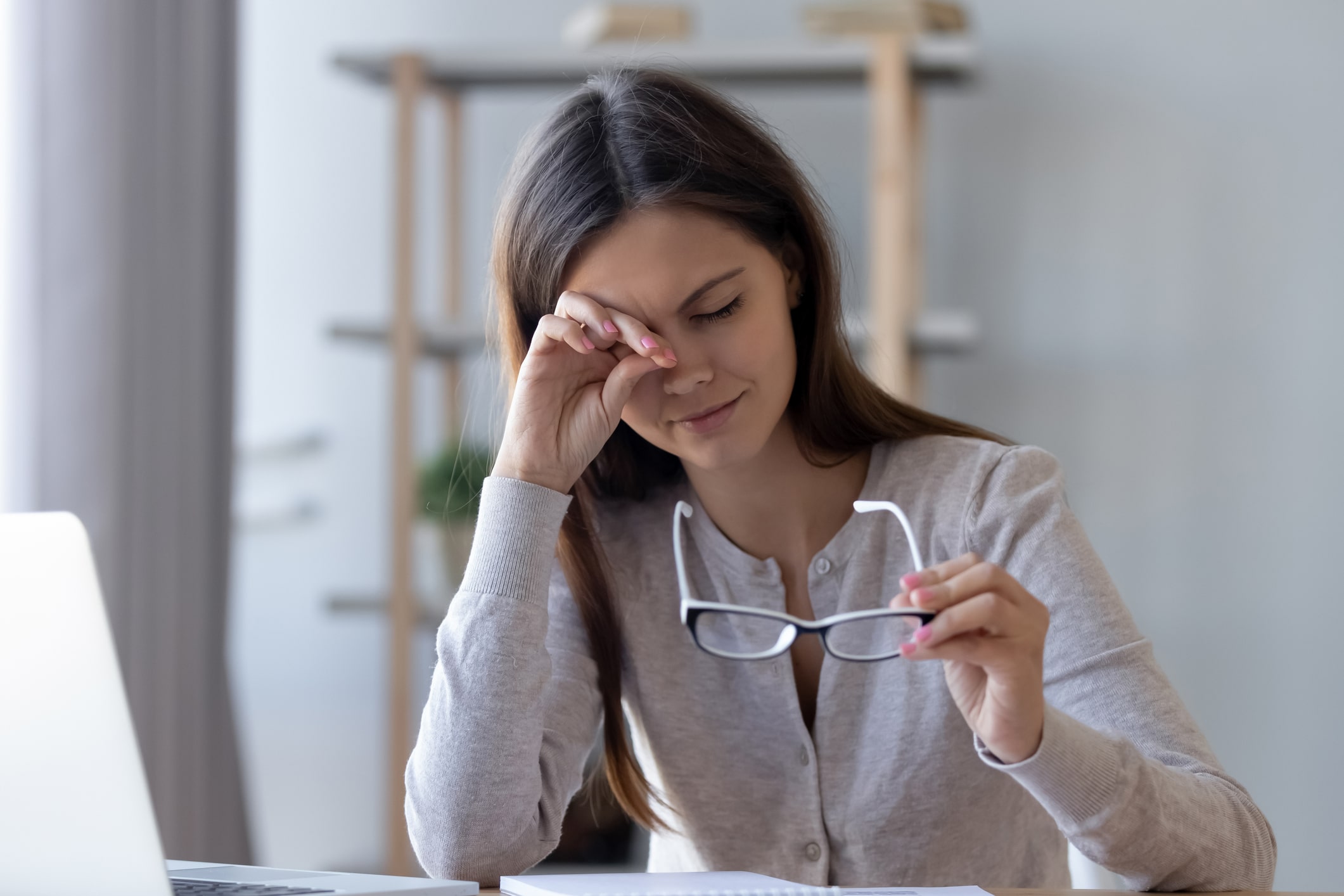The eye is an amazing camera, and few man-made cameras even begin to compare with the incredible human eye. Like the front surface of a photographic camera, the front surface of the eye also must have an exquisitely smooth, “polished” surface for crisp and clear images. The tear film is the critical front surface of the eye for high-quality images. In addition to its optical function, the tear film serves an important nutrient role for maintaining the health of the cornea.

While there are many other star players in the eye’s visual pathway (cornea, lens, retina, optic nerve, visual pathways in the brain), the tear film is an absolutely critical support player with a vital function often taken for granted… until it doesn’t function optimally.
The tear film consists of three layers:
- an inner mucous layer which helps the tears to adhere to the surface of the eye
- a middle lubricating water layer secreted by the lacrimal gland
- an outer oil layer, secreted by oil glands on the lid margin, which stabilizes the tear film and slows evaporation
If you believe you have dry eyes and are seeking treatment, be sure to give Cape Fear Cataract & Cornea a call to schedule a consultation with Dr. Brian J. Groat! Dial (910) 769-4590 to reach our Wilmington, NC office today!
What is Dry Eye?
Dry eye is the term used when the tear film is inadequate. Normally, the surface of the eye is constantly covered with a uniform layer of constantly produced tears replenished by normal and automatic frequent blinking. When the tear film dries, vision immediately becomes blurry as this is equivalent to roughing the normal smooth front surface of a camera lens.
Is Dry Eye Painful?
Dry Eye can be painful. Your eyes can burn, sting, be continually irritated, feel scratchy or feel as if you have something in your eye. This is especially true of chronic dry eye, where your tear quality is never properly lubricating your eyes.
What Are the Symptoms of Dry Eye?
Patients with dry eye or ocular surface disease complain of:
- tearing
- burning
- stinging
- redness
- irritation
- blurred vision
- inability to wear contacts comfortably
- general foreign body sensation
Often patients remark, “But my eyes are not dry. They run water all the time.” In fact, excess tearing, known as epiphora, is a common symptom of dry eye. When the corneal surface dries, the eye responds with reflex tearing to try and reestablish adequate lubrication. This is demonstrated by the tearing that sometimes results in daily activities when excess wind dries the cornea (for example, when walking out into a windy day, riding in a boat, driving with the windows down or with air vents blowing straight into one’s face, etc.) Unfortunately, this reflex tearing does not sufficiently compensate for a constantly inadequate tear film.
Common Causes of Dry Eye
We all have Dry eye at times. It could be a windy day at Wrightsville Beach. Or It could be allergy season and your eyes are inflamed and dry. Maybe you spent too many hours staring at your computer screen at work.
But the causes of chronic dry eye are due to internal issues, usually involving tear production. Dry Eye can develop when the tear ducts are not producing a sufficient supply of tears. Or the condition can be due to a chemical imbalance in the tears themselves.
Natural tears require a particular chemical balance to lubricate the eyes efficiently. Sometimes, your eyes are actually overproducing tears due to the irritation in your eyes, but the tears aren’t the right consistency to help.

Aging makes us all more likely to develop dry eye — it’s more common in people over the age of 50. It can be a side effect of taking certain medications, a sign of another medical condition, or the result from an injury.
Women tend to get dry eye more than men due to the hormonal changes that take place during pregnancy and menopause. Oral contraceptives can also lead to inconsistent tear ingredients.
These are other causes of dry eye:
- Antihistamines, decongestants, and blood pressure medications
- Environmental conditions such as smoke, wind, and excessive sun
- Eye injury
- Long-term contact lens use
- Eye or eyelid surgery
- Conjunctivitis or keratiti
- Rheumatoid arthritis, diabetes, Sjogren’s syndrome, thyroid disease
Diagnosing Dry Eye
Dr. Groat will evaluate your tear film composition and tear production to determine the problem. You will be asked about health complications, medications, and past ocular injuries to determine if that is a cause.
Dry Eye Treatment Options
Treatments for dry eye may be specifically designed depending on which layers are primarily deficient. Treatments options are non-surgical or even surgical if eyelid malpositions are a factor.

Is Dry Eye Treatment Safe?
The various dry eye treatments with Dr. Groat are low risk. Insertion of punctal plugs is a simple procedure and they can be removed if your condition changes. Unblocking clogged oil glands can be done in a few different ways, and all are safe. Since dry eye is often a result of another health condition such as rheumatoid arthritis, treating your symptoms is a benefit from treating the condition. It could be as simple switching medications, as dry eye is a common side effect with some drugs.
All in all, helping you get past the chronic irritation of dry eye is far better than any small risks associated with these treatments.
Non-Surgical Treatment for Dry Eye
Therapy usually begins with over-the-counter artificial tears, but may also include oral supplements (fish oil, omega-3s), prescription drops to increase tear production (Restasis), punctal plugs to slow drainage of the natural tears produced, antibiotics and/or hygiene regimens to treat lid margin/oil (Meibomian) gland dysfunction.
Surgical Treatment Options
If less invasive methods are unsuccessful, surgical treatments, which include the following, may be an option:
- Insertion of punctal plugs to limit tear drainage
- Punctal cautery to permanently close the drainage holes
- Treatment of an underlying disease
If an eyelid condition is causing dry eye, eyelid surgery may be recommended.
Patient Testimonial
– Debra
-Christina R.
What Happens if Dry Eye is Left Untreated?
If dry eye is left untreated, it can lead to complications that include pain, corneal ulcers/scars. There also is the potential to damage vision.

How to Prevent Dry Eye
You can think of Dry Eye as two conditions really — one is temporary and more environmentally driven, while the other is chronic.
When you think of it as environmentally driven, steps you can take to prevent occasional dry eye are behavioral. For instance, many people have dry eye during allergy season, and these are steps you can take:
- Close the windows in your house and car when pollen counts are high.
- Use air conditioning when pollen is flying around.
- Wearing sunglasses will help keep pollen from entering your eyes when outside.
Wash your hands after you pet a dog or cat to keep the dander away from your eyes and nose.
Here are other steps to prevent occasional dry eye:
- Don’t let your car heater, fans, or other blowers directly hit your eyes.
- Wear sunglasses.
- Protect your eyes on windy, dusty days.
- Take breaks from looking at your computer screen, such as the 20-20-20 rule (every 20 minutes look at an object at least 20 feet away for 20 seconds).
- Avoid smoke from fireplaces or cigarettes
- Reduce the time you wear your contacts.
- Get a humidifier.
Chronic dry eye isn’t an occasional thing. It’s a problem with your tear production or the quality of your tears is deficient. It comes from a lack of saline water in your tears, dysfunction of the Meibomian oil glands, or inflammation of the glands that make saline water and oil. There is research showing that increased intake of fish oil and omega-3 fatty acids can help here. Otherwise, treatments such as unblocking clogged oil glands or the insertion of punctal plugs to keep tears on your eyes longer may be necessary.
How Much Does Treatment Cost?
Treatment varies depending on the method. Prescription eye drops or tear stimulating drops are low cost. The simple surgeries to open clogged Meibomian glands or insert punctal plugs are more involved. But they are not intensive procedures, either.
Once Dr. Groat understands what is behind your chronic dry eye, he can give you an idea of what treating it will cost.
Is Dry Eye Treatment Covered by Insurance?
Occasional dry eye due to allergies, dust, winter heating, and the like is not covered by insurance. Chronic dry eye usually is. Dr. Groat can confirm that your dry eye is an ongoing condition, and this usually makes it available for coverage. However, different carriers can vary with this.
Call Dr. Groat for Dry Eye Treatment in Wilmington, NC
Cape Fear Cataract & Cornea uses a step-wise approach to treat ocular surface disease. Call today at 910-769-4590 to schedule an appointment. You can also book your appointment with Dr. Groat by clicking here to fill out our appointment request form.

